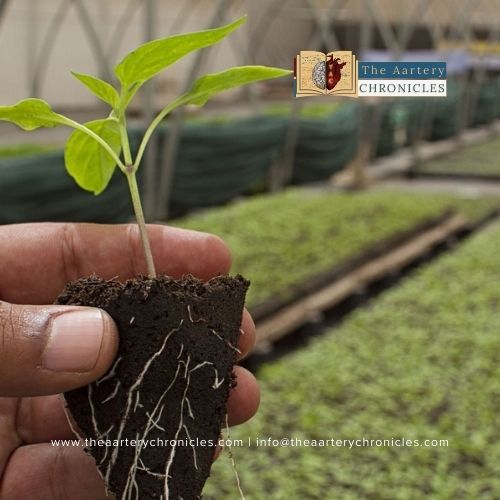

Body Recomposition Made Easy: Foods, Workouts & Tips
Body re-composition, a.k.a. ‘recomping’ means losing weight and gaining muscle simultaneously. Once upon a time, recomping was followed by bodybuilders and weightlifters. Still, the trend has evolved, as it can now be followed by all, offering a beneficial and healthy lifestyle that involves specific exercises and dietary changes to transform body shape and structure by reducing fat and building muscle mass concurrently.
“Exercise is king. Nutrition is queen. Put them together and you’ve got a kingdom” – Jack LaLanne
The body recomposition diet is burning fat by consuming fewer calories and having more protein for repairing and growing muscle. A 2020 review in Nutrients confirmed that a high-protein diet coupled with strength training effectively reduced visceral fat and improved the body composition in men.
The body recomposition diet is prescribed and curated as per your body structure, vital statistics, gender, medical history, and genetics by your dietician.
Diet for body recomposition
The body recomposition diet comprises foods that facilitate muscle growth, enable fat loss and repair muscles by managing our appetite and energy levels.
1) Protein: A meal rich in protein enables muscle protein synthesis, repairs muscle and keeps us satiated, aiding in fat loss and muscle gain. The daily requirement of protein is 1.6 – 2.2 g of protein per kg of your body weight, as per your desired intensity of training and body composition.
- Protein-rich foods: eggs, chicken, lean and red meat, cheese, yoghurt,
- Plant-based proteins: tofu, legumes, whey protein
2) Healthy fats: Healthy fats help in producing hormones, regulate your appetite, and effectively manage your brain and body functions, promoting body recomposition.
- Avocados, olive oil, fatty fish, and coconut
- Nuts (peanuts, cashews, almonds) and seeds
3) Whole grains: Whole grains are high in fibre, which controls hunger pangs and limits daily food consumption. They are rich in carbohydrates that help build muscle as they replenish energy levels promptly after physical exercise.
- Oats, quinoa, brown rice, whole grain bread, whole wheat pasta
4) Fruits & vegetables: Daily consumption of seasonal fruits and vegetables contains high fibre that satiates us for the entire day. They contain carbohydrates, vitamins and minerals that are useful for building muscles.
- Fruits: Oranges, apples, bananas, papaya
- Vegetables: spinach, eggplant, carrots, zucchini
5) Water intake: Our hydration, i.e. water intake, helps to control our appetite, reduce calories consumed daily. Recommended quantity is 2 to 3 litres of water per day. Hydration makes muscles contract and is necessary for storing and releasing muscle glycogen that provides energy during physical exercise.
6) Foods to avoid: The following foods are to be avoided to gain muscle and lose fat, while following the body recomposition diet.
- Sugar-rich foods: ice cream, soda, cakes, cookies
- Meats high in fats: rump steak, ribs, skirt steak
- Smoked & cured meats: sausage, salami, prosciutto, mortadella
- Refined carbohydrates: White bread, white rice, pasta
- Condiments: mayonnaise, ready-made sauces, ketchup, seasonings (in powder /pouch packing)
- Alcoholic beverages: Beer, wine
Your nutritionist/dietician can curate the most suitable diet plan for you to gain the desired results.
7) Strength training: Practice strength training under a qualified instructor as part of the body recomposition process to build muscle and lose fat.
- Brisk walking, jogging, cycling, swimming, group aerobics
- Weight training, callisthenics, CrossFit, bench presses, deadlifts, rows, overhead presses
- Cardiovascular exercises
- High-intensity interval training (HIT)workouts
- Flexibility and mobility exercises: Yoga, Pilates
Additionally:
- Sufficient sleep helps to balance hormones like ghrelin and leptin, which are essential for regulating hunger and satiety for losing weight
- Chewing your food mindfully and slowly can prevent overeating
- Dietary supplements may be prescribed to build muscle as per your body’s requirements
The body recomposition process is a lifelong process to be followed consistently. However, it may not be suitable for all, hence, consultation with a dietitian is required before commencing it. Once you begin the body recomposition diet, based on your experience, it can be modified to gain your required results. A fit and healthy body makes the mind healthy too. You feel rejuvenated, energetic, alert, mentally focused, aware, happy and full of positivity.
Lifestyle changes influence our health and how we age. It is better to lead a healthy lifestyle rather than be a victim of lifestyle-related issues like hypertension, diabetes, obesity, and cardiovascular problems, among others.
“It’s going to be a journey. It’s not a sprint to get in shape.”- Kerri Walsh Jennings









